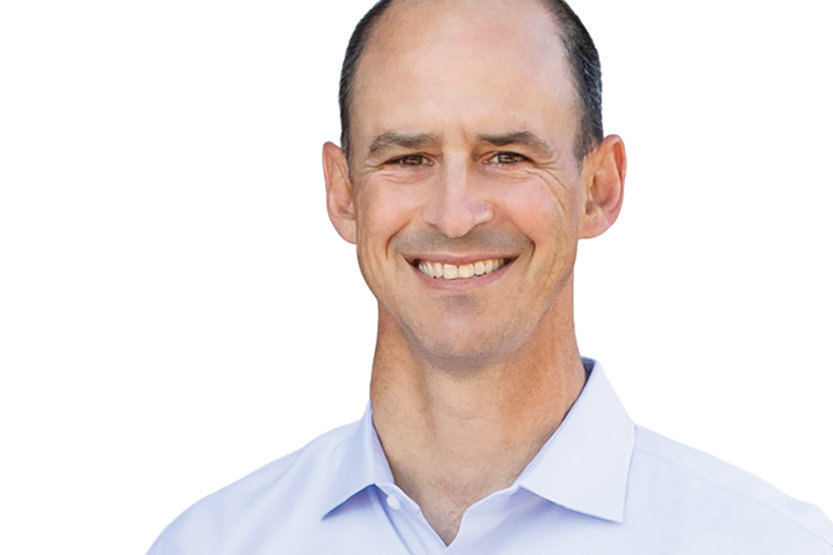In Class: Faith Watcher
 Dept. of Religion Chair, Jonathan Ebel (Image by L. Brian Stauffer)
Dept. of Religion Chair, Jonathan Ebel (Image by L. Brian Stauffer) I research, write and teach about violence and war and how they intersect with religion in American history. My courses are generally on the religious history of the U.S. from the Colonial Era to the present. I also offer seminars on evangelicalism, Catholicism, and religion and American cinema. Right now, I’m teaching a class on religion and violence in America.
Religion matters. It always has. If we don’t pay attention to religion, we’re missing huge parts of American history. Let’s talk about the January 6th insurrection. You had an incumbent president who lost an election pretty badly, and whose supporters were animated by that loss to rise up against democracy. But that narrative doesn’t tell you a whole lot about the movements that helped elevate that president to power, or about the backgrounds of many of those who supported him and felt justified and even righteous in participating in the insurrection and threatening to carry out lethal violence against the duly elected leadership of our country. That’s where the study of religion in America really does its work—in particular, the history of evangelicalism in the 20th century.
White American evangelicals have long worshipped at the altar of masculinity. To borrow from historian Kristin Du Mez, they have reimagined Jesus and sought salvation in John Wayne. This embrace of muscularity and militancy creates fertile ground for all kinds of political organizing, for instance around gun culture, anti-diversity initiatives, a thin kind of libertarianism and most things military. I think all of those things converged at the Capitol on Jan. 6.
The students have a research project in which they trace the religious biography of an individual who was involved in the Jan. 6 insurrection. What church did they attend? Who was their pastor? What sorts of messages might that person have heard? A lot of stuff is on YouTube—it’s an amazing video archive. I want, if it’s possible, for students to find that person’s own words. What did he or she say about the role religion played in bringing them to that place at that time for that cause?
I make it clear in my classes from the very beginning that we’re learning about religion from an academic perspective, that we can have these conversations and students can still be faithful practicing Buddhists, Christians, Hindus, Jews, Muslins.
Students at the University of Illinois are going to graduate and go out and be leaders. That’s who we’re training—tomorrow’s leaders. And if they’re going to be effective—whether in corporate America, or in the practice of medicine or law or engineering—they have to be literate across lines of religion.
After the 2016 election, I wanted to show people that when the world, and in this case, politics, don’t go your way, there are things that you can do to try to change that. That doesn’t have to be declaring yourself a candidate for Congress, but it can be. [Ebel ran for a U.S. Congressional seat in 2018.] Maybe my campaign and others that season and subsequently have drawn in people who wouldn’t otherwise have gotten involved.
Edited and condensed from an interview conducted on Sept. 13, 2021.


